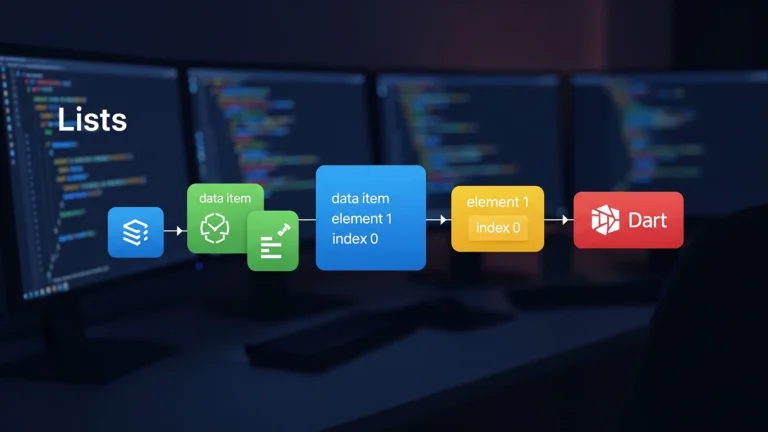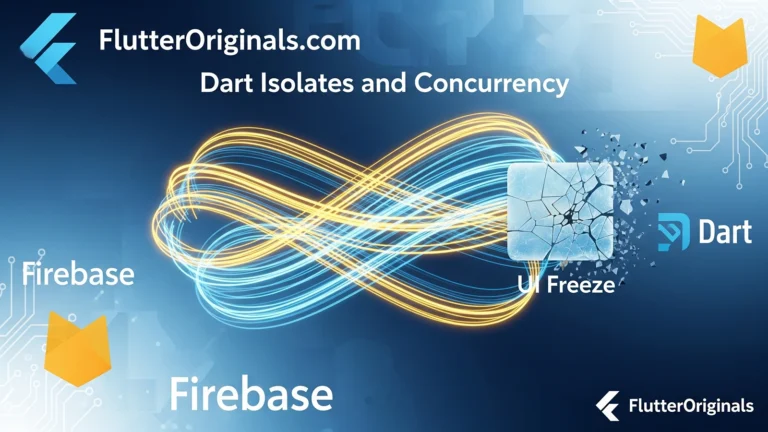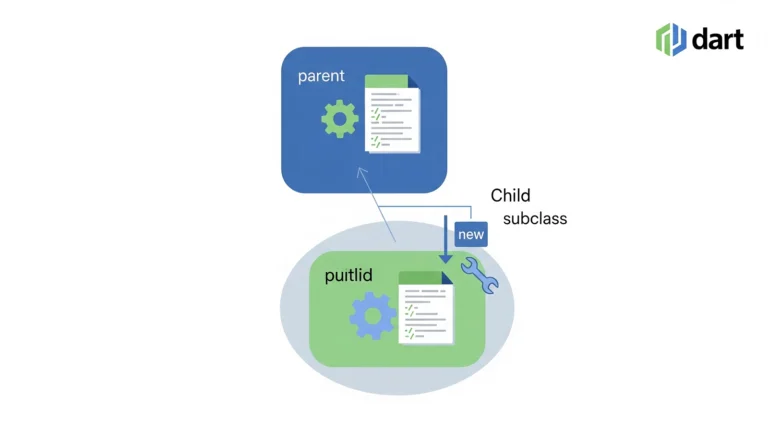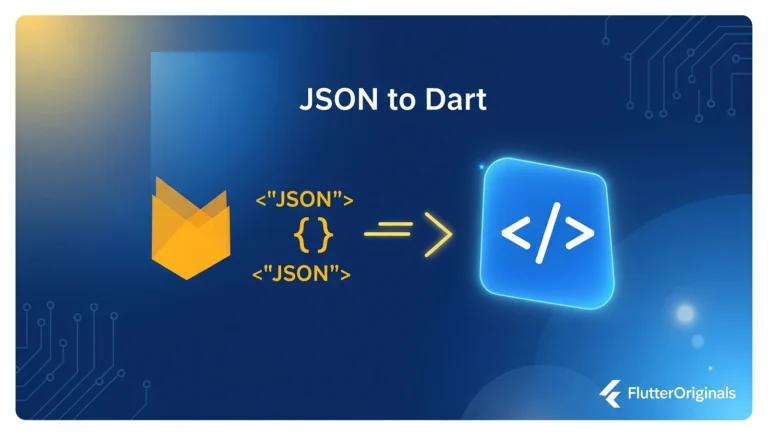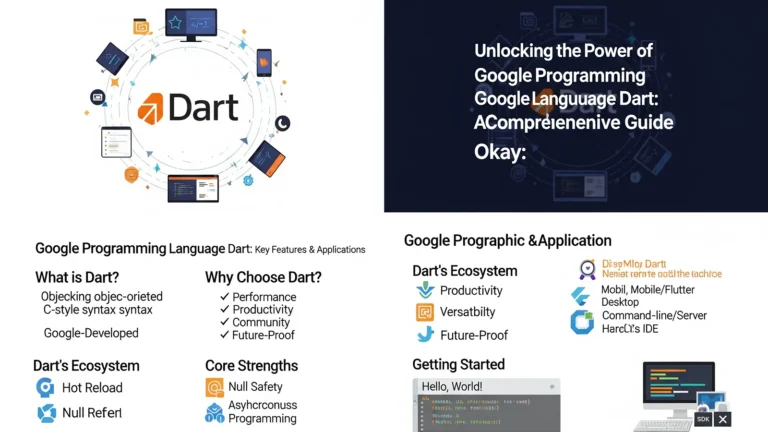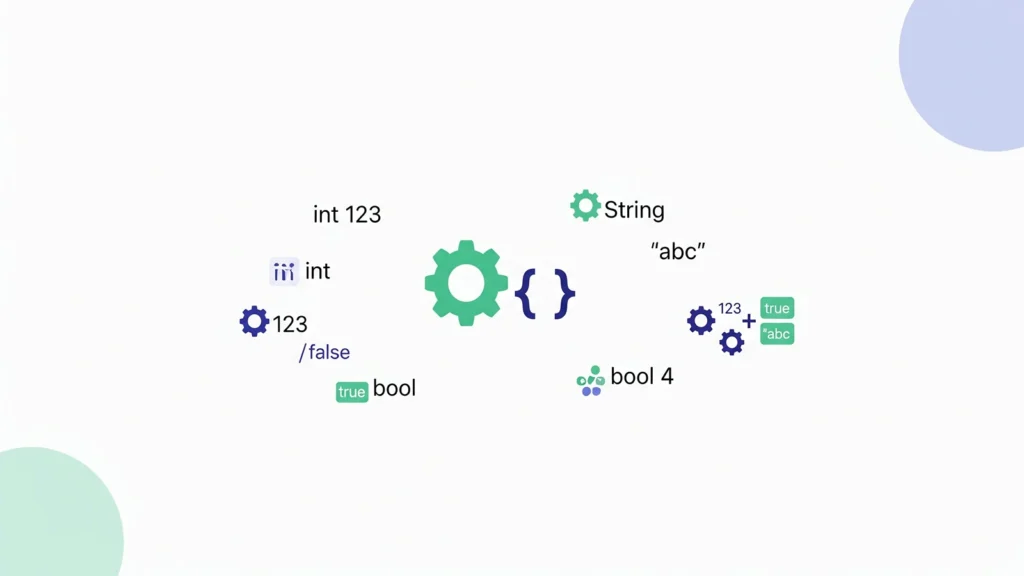
Understanding Method and Function Overloading Concept
Method and function overloading is a programming concept found in many object-oriented languages where you can define multiple methods or functions with the same name but with different parameter lists. The compiler or runtime environment determines which version to call based on the number, types, and order of arguments passed during the method invocation. This polymorphic behavior allows developers to create more intuitive and flexible APIs where the same logical operation can be performed with different input variations.
In traditional overloading scenarios, the method signature (which includes the method name, parameter types, and parameter count) must be unique for each overloaded version. This enables the language’s type system to resolve which specific implementation should be executed at compile time or runtime. The primary benefits of overloading include improved code readability, reduced cognitive load for developers using the API, and the ability to provide sensible defaults for optional functionality.
However, Dart takes a fundamentally different approach to this problem. Instead of supporting traditional method overloading, Dart’s designers chose to implement more explicit and flexible mechanisms that achieve similar goals while maintaining the language’s core principles of simplicity, clarity, and performance.
Why Dart Doesn’t Support Traditional Overloading
Dart’s decision to exclude traditional method overloading stems from several philosophical and practical design considerations that reflect the language’s overall approach to software development. The Dart team prioritized simplicity and explicitness over the convenience that overloading might provide, believing that the alternatives they implemented would lead to more maintainable and understandable code.
The first major reason is complexity reduction. Method overloading can create ambiguous situations where the compiler struggles to determine which method variant to call, especially when dealing with type hierarchies, implicit conversions, or null values. These ambiguities can lead to subtle bugs that are difficult to diagnose and fix. By avoiding overloading, Dart eliminates an entire class of potential compilation and runtime errors.
Additionally, Dart’s optional parameter system provides a more explicit and flexible solution than traditional overloading. With optional parameters, developers can clearly see all possible parameter combinations in a single method signature, making the API more discoverable and easier to understand. This approach also reduces the total number of methods in a class, leading to cleaner interfaces and better IDE support with more comprehensive autocomplete and documentation.
The language’s focus on performance also influenced this decision. Method resolution in overloaded scenarios can introduce runtime overhead, particularly in dynamic dispatch situations. Dart’s approach allows for more predictable performance characteristics and better optimization opportunities for the compiler and runtime.
Dart’s Alternative Approach: Optional Parameters
Dart addresses the need for method flexibility through a sophisticated optional parameter system that provides more power and clarity than traditional overloading. This system consists of two main types: optional positional parameters and optional named parameters, each serving different use cases and design patterns.
Optional parameters in Dart are integrated deeply into the language’s type system, providing compile-time safety while maintaining runtime flexibility. The parameter system works seamlessly with Dart’s null safety features, ensuring that optional parameters are handled consistently and safely throughout the codebase. This integration means that developers get the benefits of flexible method signatures without sacrificing type safety or performance.
The optional parameter system also integrates well with Dart’s tooling ecosystem. IDEs can provide better autocomplete suggestions, parameter hints, and refactoring support because they have complete information about all possible parameter combinations in a single location. This leads to improved developer productivity and fewer errors during development.
1. Optional Positional Parameters
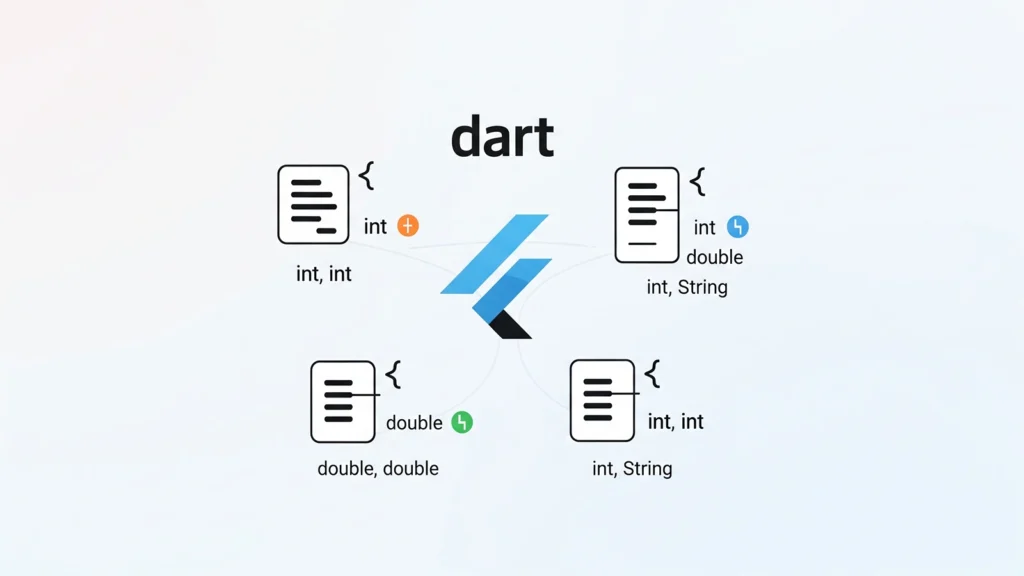
Optional positional parameters allow methods to accept a variable number of arguments in a specific order, where trailing arguments can be omitted during method calls. These parameters are defined using square brackets and can include default values or be nullable types. This approach is particularly useful when you have a natural ordering to your parameters and want to allow callers to specify only the initial subset they care about.
The key advantage of optional positional parameters is their simplicity and familiarity to developers coming from other languages. They maintain the traditional left-to-right parameter ordering while providing flexibility for omitting trailing parameters. This makes them ideal for scenarios where you have a core set of required parameters followed by increasingly specific or advanced options.
When designing methods with optional positional parameters, it’s important to order parameters from most commonly used to least commonly used, as callers cannot skip intermediate parameters. This design consideration encourages thoughtful API design and helps ensure that the most common use cases require the least ceremony from calling code.
void greet([String? name, String? title]) {
if (name != null && title != null) {
print('Hello $title $name');
} else if (name != null) {
print('Hello $name');
} else {
print('Hello there');
}
}
void main() {
greet(); // Hello there
greet('Alice'); // Hello Alice
greet('Bob', 'Mr.'); // Hello Mr. Bob
}
2. Optional Named Parameters
Named parameters provide even greater flexibility by allowing callers to specify arguments by name rather than position. This approach is particularly powerful for methods with many parameters, parameters that don’t have a natural ordering, or when you want to make the calling code more self-documenting. Named parameters can be optional or required, and they support default values just like positional parameters.
The primary benefit of named parameters is improved code readability and maintainability. When calling a method with named parameters, the intent becomes much clearer because each argument is explicitly labeled. This reduces the likelihood of passing arguments in the wrong order and makes the code more self-documenting, which is especially valuable in team environments or when revisiting code after extended periods.
Named parameters also provide excellent flexibility for API evolution. You can add new optional named parameters to existing methods without breaking existing calling code, making them ideal for public APIs that need to maintain backward compatibility while adding new features. This evolutionary capability is crucial for long-term software maintenance and library development.
void createUser({
required String name,
int? age,
String? email,
bool isActive = true,
}) {
print('Creating user: $name');
if (age != null) print('Age: $age');
if (email != null) print('Email: $email');
print('Active: $isActive');
}
void main() {
createUser(name: 'Alice');
createUser(name: 'Bob', age: 30);
createUser(name: 'Carol', email: 'carol@email.com', isActive: false);
}
3. Default Parameter Values
Default parameter values work in conjunction with both optional positional and named parameters to provide sensible fallbacks when arguments are not specified. This feature allows method designers to choose appropriate defaults that work for the majority of use cases while still allowing customization when needed. Default values can be compile-time constants, making them efficient and predictable.
The ability to specify default values greatly improves the usability of APIs by reducing the amount of boilerplate code that callers need to write. Instead of forcing every caller to specify every parameter, defaults allow the common cases to be handled with minimal code while still providing full control when needed. This strikes an excellent balance between simplicity and flexibility.
Default values also serve as a form of documentation, clearly indicating the recommended or standard values for optional parameters. This helps guide developers toward best practices and reduces the cognitive load of using complex APIs by providing sensible starting points for customization.
void drawRectangle(int width, int height, {Color color = Colors.blue, bool filled = false}) {
print('Drawing ${filled ? 'filled' : 'outlined'} rectangle');
print('Size: ${width}x$height, Color: $color');
}
enum Colors { red, blue, green }
void main() {
drawRectangle(100, 50); // Uses defaults
drawRectangle(200, 100, color: Colors.red); // Custom color
drawRectangle(150, 75, filled: true); // Filled rectangle
}
Constructor Alternatives to Overloading
Constructors in object-oriented programming often benefit from overloading to provide multiple ways of creating objects with different sets of initial data. Since Dart doesn’t support traditional constructor overloading, it provides named constructors as an elegant alternative that actually offers more clarity and flexibility than traditional overloading approaches.
Named constructors allow developers to create multiple constructor variants with descriptive names that clearly indicate their purpose and the type of object initialization they perform. This approach is superior to traditional overloading because the constructor names serve as documentation, making it immediately clear what each constructor does and when it should be used. This self-documenting nature reduces the need for external documentation and makes code more maintainable.
The named constructor approach also eliminates ambiguity that can arise with traditional constructor overloading, particularly when dealing with parameters of similar types. Instead of relying on parameter patterns to differentiate constructors, named constructors use explicit names that convey intent, reducing the likelihood of calling the wrong constructor variant.
class Person {
String name;
int age;
String email;
// Main constructor
Person(this.name, this.age, this.email);
// Named constructors (alternative to overloading)
Person.withName(this.name) : age = 0, email = '';
Person.withNameAndAge(this.name, this.age) : email = '';
Person.fromMap(Map<String, dynamic> map)
: name = map['name'],
age = map['age'],
email = map['email'];
Person.guest() : name = 'Guest', age = 0, email = 'guest@example.com';
@override
String toString() => 'Person(name: $name, age: $age, email: $email)';
}
void main() {
var person1 = Person('Alice', 30, 'alice@email.com');
var person2 = Person.withName('Bob');
var person3 = Person.withNameAndAge('Carol', 25);
var person4 = Person.fromMap({'name': 'David', 'age': 35, 'email': 'david@email.com'});
var person5 = Person.guest();
print(person1); // Person(name: Alice, age: 30, email: alice@email.com)
print(person2); // Person(name: Bob, age: 0, email: )
print(person3); // Person(name: Carol, age: 25, email: )
print(person4); // Person(name: David, age: 35, email: david@email.com)
print(person5); // Person(name: Guest, age: 0, email: guest@example.com)
}
Advanced Patterns and Techniques
Beyond basic optional parameters and named constructors, Dart provides several advanced patterns that can address complex scenarios where traditional overloading might have been used. These patterns leverage Dart’s unique features to create elegant solutions that are often more powerful than what traditional overloading could provide.
Factory constructors represent one of the most powerful alternatives to constructor overloading. Unlike regular constructors, factory constructors don’t automatically create new instances but instead have complete control over object creation. This allows them to implement sophisticated initialization logic, return cached instances, or even return instances of subclasses based on the provided parameters.
The factory pattern is particularly useful when object creation involves complex logic, external dependencies, or when you want to control instance creation for performance or architectural reasons. Factory constructors can also be combined with named constructors to create highly expressive and flexible object creation APIs.
1. Using Factory Constructors
Factory constructors provide a way to control object instantiation while still maintaining the familiar constructor syntax. They’re particularly useful when you need to perform complex initialization logic, implement singleton patterns, or create objects based on runtime conditions. Unlike regular constructors, factory constructors can return existing instances or even instances of different classes that implement the same interface.
The power of factory constructors lies in their flexibility and the fact that they can encapsulate complex creation logic behind a simple, clean interface. This makes them ideal for scenarios where the object creation process involves multiple steps, external resources, or conditional logic that would be awkward to express in a regular constructor.
Factory constructors also play well with Dart’s type system and null safety features. They can perform validation and initialization that might not be possible or elegant in regular constructors, while still providing the compile-time guarantees that Dart developers expect.
class Logger {
String level;
bool timestamp;
Logger._(this.level, this.timestamp);
factory Logger.info({bool timestamp = true}) {
return Logger._('INFO', timestamp);
}
factory Logger.debug({bool timestamp = false}) {
return Logger._('DEBUG', timestamp);
}
factory Logger.error({bool timestamp = true}) {
return Logger._('ERROR', timestamp);
}
void log(String message) {
String output = timestamp
? '${DateTime.now()} [$level] $message'
: '[$level] $message';
print(output);
}
}
void main() {
var infoLogger = Logger.info();
var debugLogger = Logger.debug();
var errorLogger = Logger.error(timestamp: false);
infoLogger.log('Application started');
debugLogger.log('Debug information');
errorLogger.log('Something went wrong');
}
2. Method Alternatives with Different Names
When the functionality you want to provide is sufficiently different that optional parameters don’t provide adequate clarity, using methods with descriptive names is often the best approach. This pattern emphasizes explicitness over brevity, making code more self-documenting and reducing the cognitive load required to understand what a particular method call will do.
Descriptive method names eliminate ambiguity about which variant of functionality is being invoked and make the code more maintainable by clearly expressing intent. This approach is particularly valuable in team environments where code needs to be understood by multiple developers with varying levels of familiarity with the codebase.
While this approach might result in slightly more verbose code, the trade-off in clarity and maintainability is generally worthwhile, especially for public APIs or complex business logic where understanding the exact behavior is crucial for correctness.
class Calculator {
// Instead of multiple add() methods, use descriptive names
double addTwoNumbers(double a, double b) => a + b;
double addThreeNumbers(double a, double b, double c) => a + b + c;
double addList(List<double> numbers) => numbers.reduce((a, b) => a + b);
double addWithPrecision(double a, double b, int precision) {
return double.parse((a + b).toStringAsFixed(precision));
}
}
void main() {
var calc = Calculator();
print(calc.addTwoNumbers(5.0, 3.0)); // 8.0
print(calc.addThreeNumbers(1.0, 2.0, 3.0)); // 6.0
print(calc.addList([1.0, 2.0, 3.0, 4.0])); // 10.0
print(calc.addWithPrecision(1.234, 2.567, 2)); // 3.80
}
Operator Overloading in Dart
While Dart doesn’t support method overloading in the traditional sense, it does support operator overloading, which allows developers to define custom behavior for built-in operators when applied to user-defined classes. This feature enables the creation of classes that feel natural and intuitive to use, particularly for mathematical or collection-like types where operator syntax provides clear semantic meaning.
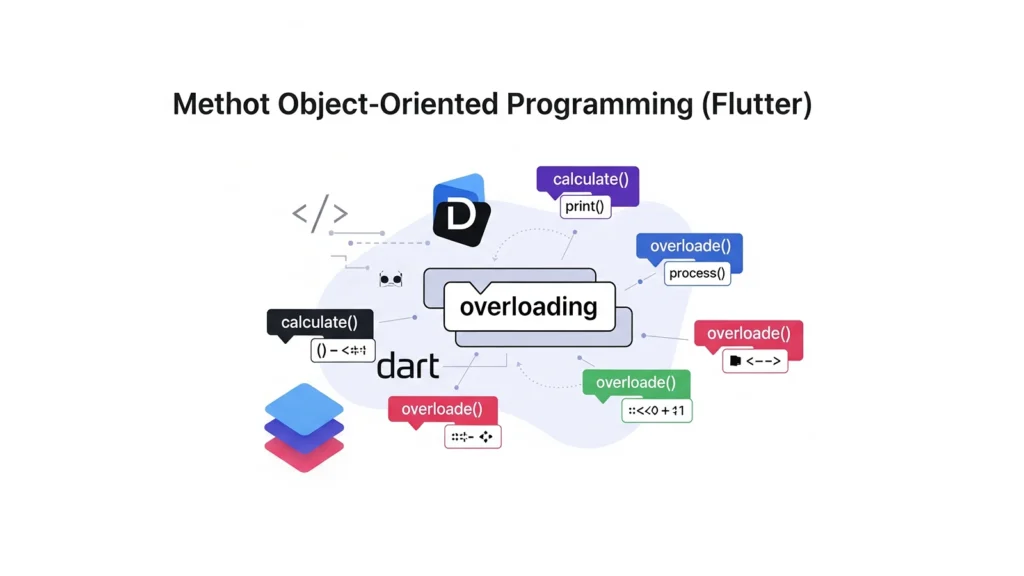
Operator overloading in Dart is carefully constrained to prevent abuse while still providing powerful expressiveness. Only specific operators can be overloaded, and they must maintain their expected semantic meaning. This ensures that overloaded operators enhance code readability rather than obscuring it, which is a common problem in languages with unrestricted operator overloading.
The ability to overload operators is particularly valuable for domain-specific classes where mathematical or logical operations have natural meanings. Vector mathematics, complex numbers, custom collection types, and other specialized data structures benefit greatly from operator overloading because it allows them to be used with familiar, intuitive syntax.
class Vector {
double x, y;
Vector(this.x, this.y);
// Operator overloading
Vector operator +(Vector other) => Vector(x + other.x, y + other.y);
Vector operator -(Vector other) => Vector(x - other.x, y - other.y);
Vector operator *(double scalar) => Vector(x * scalar, y * scalar);
bool operator ==(Object other) =>
other is Vector && other.x == x && other.y == y;
@override
int get hashCode => x.hashCode ^ y.hashCode;
@override
String toString() => 'Vector($x, $y)';
}
void main() {
var v1 = Vector(3.0, 4.0);
var v2 = Vector(1.0, 2.0);
print(v1 + v2); // Vector(4.0, 6.0)
print(v1 - v2); // Vector(2.0, 2.0)
print(v1 * 2.0); // Vector(6.0, 8.0)
print(v1 == v2); // false
}
Best Practices for Dart’s Approach
Developing effective Dart code requires understanding and embracing the language’s philosophy regarding method design and API creation. The best practices for working without traditional overloading focus on creating clear, maintainable, and flexible interfaces that take advantage of Dart’s unique features rather than trying to replicate patterns from other languages.
The key principle underlying all of these best practices is explicitness over cleverness. Dart’s design philosophy favors code that clearly expresses its intent over code that is maximally concise or clever. This approach leads to codebases that are easier to understand, debug, and maintain over time, which is particularly important for larger projects or teams.
When designing APIs without traditional overloading, it’s important to think carefully about the common use cases and design the default behavior to handle them elegantly while still providing the flexibility needed for advanced scenarios. This often means starting with the simplest possible interface and adding complexity only as needed.
- Use Optional Parameters: Optional parameters should be your first choice when you need to provide flexibility in method calls. They provide excellent balance between simplicity and power while maintaining clear, discoverable interfaces. When choosing between positional and named optional parameters, consider the number of parameters and whether they have a natural ordering.
- Named Constructors: Named constructors are ideal for providing multiple ways to create objects while maintaining clarity about what each creation method does. Choose names that clearly describe the initialization strategy or data source being used, making the code self-documenting.
- Descriptive Names: When optional parameters aren’t sufficient to express the differences in functionality, use descriptive method names that clearly communicate what each method does. This approach trades brevity for clarity, which is usually the right trade-off for maintainable code.
- Factory Constructors: Use factory constructors when object creation involves complex logic, external dependencies, or when you need control over the instantiation process. They provide the flexibility of custom creation logic while maintaining familiar constructor syntax.
- Extension Methods: Extension methods allow you to add functionality to existing classes without modifying their source code, providing a way to create specialized behavior that feels like natural part of the class interface.
extension StringExtensions on String {
String capitalizeFirst() {
if (isEmpty) return this;
return this[0].toUpperCase() + substring(1);
}
String capitalizeWords() {
return split(' ')
.map((word) => word.capitalizeFirst())
.join(' ');
}
}
void main() {
print('hello world'.capitalizeFirst()); // Hello world
print('hello world'.capitalizeWords()); // Hello World
}
Summary and Philosophy
Dart’s approach to the overloading problem represents a thoughtful balance between functionality and simplicity that reflects the language’s overall design philosophy. Rather than implementing traditional overloading with all its potential complexities and ambiguities, Dart provides a collection of features that work together to achieve the same goals while maintaining clarity and avoiding common pitfalls.
The alternatives Dart provides—optional positional parameters, optional named parameters with defaults, named constructors, factory constructors, operator overloading, and extension methods—are not just substitutes for traditional overloading but often superior solutions that provide more expressiveness and clarity. These features work synergistically with Dart’s type system, null safety, and tooling ecosystem to create a development experience that is both productive and maintainable.
This design philosophy extends beyond just overloading to represent Dart’s broader approach to language design: providing powerful features that encourage good practices rather than features that can be easily misused. The result is a language that helps developers write clear, maintainable code while still providing the flexibility and expressiveness needed for complex applications.
Understanding and embracing this philosophy is key to becoming productive in Dart and taking full advantage of what the language offers. Rather than fighting against these design decisions or trying to recreate patterns from other languages, successful Dart development involves learning to leverage these alternatives effectively to create clean, maintainable, and expressive code.
Frequently Asked Questions (FAQ)
1. Does Dart support method overloading?
Answer: No, Dart does not support traditional method overloading like Java or C#. You cannot define multiple methods with the same name but different parameter lists. Instead, Dart provides more elegant alternatives like optional parameters, named parameters, and named constructors.
2. Why doesn’t Dart support method overloading?
Answer: Dart’s designers chose to exclude method overloading for several reasons:
- Simplicity: Reduces language complexity and potential ambiguities
- Performance: Eliminates method resolution overhead
- Clarity: Optional parameters provide clearer, more explicit APIs
- Tooling: Better IDE support with comprehensive autocomplete and documentation
- Maintenance: Easier to understand and maintain codebases
3. What are the alternatives to method overloading in Dart?
Answer: Dart provides several powerful alternatives:
- Optional Positional Parameters:
method([Type? param]) - Optional Named Parameters:
method({Type? param}) - Default Parameter Values:
method({Type param = defaultValue}) - Named Constructors:
Class.namedConstructor() - Factory Constructors:
factory Class.create() - Descriptive Method Names:
addTwoNumbers(),addThreeNumbers() - Extension Methods: Add functionality to existing classes
4. How do I create multiple constructors in Dart without overloading?
Answer: Use named constructors, which are more descriptive than traditional overloading:
dart
class Person {
String name;
int age;
Person(this.name, this.age); // Main constructor
Person.withName(this.name) : age = 0; // Named constructor
Person.guest() : name = 'Guest', age = 0; // Factory-like constructor
}5. What’s the difference between optional positional and named parameters?
Answer:
- Optional Positional Parameters
[Type? param]: Must be provided in order, trailing parameters can be omitted - Optional Named Parameters
{Type? param}: Can be provided in any order by specifying parameter names - Use positional when parameters have natural ordering
- Use named for better readability and when you have many parameters
6. Can I overload operators in Dart?
Answer: Yes! Dart supports operator overloading for built-in operators. You can override operators like +, -, *, ==, etc., for your custom classes:
dart
class Vector {
double x, y;
Vector(this.x, this.y);
Vector operator +(Vector other) => Vector(x + other.x, y + other.y);
Vector operator *(double scalar) => Vector(x * scalar, y * scalar);
}7. How do I handle multiple parameter combinations without overloading?
Answer: Use optional named parameters with default values:
dart
void createUser({
required String name,
int? age,
String? email,
bool isActive = true,
}) {
// Handle all parameter combinations in one method
}
// Usage:
createUser(name: 'Alice');
createUser(name: 'Bob', age: 30, email: 'bob@email.com');8. What are factory constructors and when should I use them?
Answer: Factory constructors provide control over object instantiation and can return existing instances or different subtypes. Use them when:
- Object creation involves complex logic
- You need to return cached instances
- You want to return different subtypes based on parameters
- You need to perform validation before object creation
dart
factory Logger.debug() => Logger._('DEBUG', false);
factory Logger.info() => Logger._('INFO', true);9. How do extension methods work as an overloading alternative?
Answer: Extension methods add functionality to existing classes without modifying them:
dart
extension StringUtils on String {
String capitalize() => this[0].toUpperCase() + substring(1);
String reverse() => split('').reversed.join('');
}
// Usage:
'hello'.capitalize(); // 'Hello'
'world'.reverse(); // 'dlrow'10. Is Dart’s approach better than traditional overloading?
Answer: Dart’s approach offers several advantages:
- Clearer Intent: Named parameters and constructors are self-documenting
- Better Tooling: IDEs provide better autocomplete and parameter hints
- Fewer Bugs: No ambiguous method resolution
- Easier Maintenance: All parameter combinations in one place
- Performance: No method resolution overhead
- Flexibility: Can add new optional parameters without breaking existing code
11. How do I migrate from overloaded methods to Dart’s approach?
Answer: Follow this migration strategy:
- Identify the core functionality common to all overloaded methods
- Convert parameters to optional (positional or named)
- Use default values for common scenarios
- Create named constructors for different initialization patterns
- Use descriptive method names for significantly different behaviors
12. Can I simulate method overloading using dynamic types?
Answer: While technically possible using dynamic types and runtime type checking, this is strongly discouraged because:
- Loses compile-time type safety
- Poor performance due to runtime type checks
- Difficult to debug and maintain
- Goes against Dart’s design principles
- No IDE support for autocomplete and refactoring
13. What about generic methods with different type parameters?
Answer: Dart handles generics differently than overloading. Use generic methods with type parameters and constraints:
dart
T processData<T>(T data) {
// Generic method that works with any type
return data;
}
// Or with constraints:
T processComparable<T extends Comparable<T>>(T data) {
// Works with comparable types only
return data;
}14. How do I handle backward compatibility when changing method signatures?
Answer: Use optional named parameters to maintain compatibility:
dart
// Before:
void oldMethod(String name, int age) { }
// After (backward compatible):
void oldMethod(String name, {int? age, String? email}) {
// Handle both old and new calling patterns
}15. Are there performance implications of Dart’s approach?
Answer: Dart’s approach generally provides better performance:
- No method resolution overhead at runtime
- Better optimization opportunities for the compiler
- Predictable performance characteristics
- Efficient parameter handling with compile-time resolution
- Optional parameters add minimal overhead compared to method dispatch in overloaded scenarios

